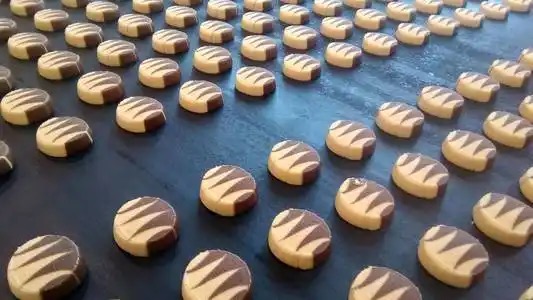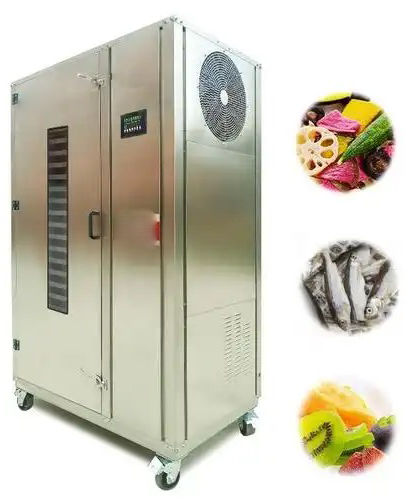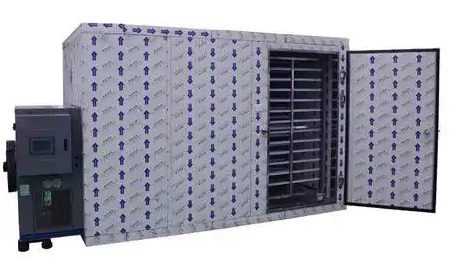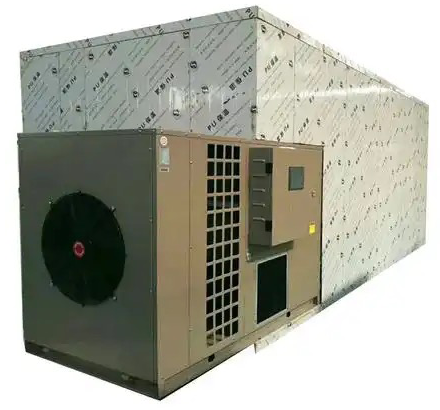
Content Menu
● Introduction
● Understanding Heat Pump Dryers
>> How Heat Pump Dryers Work
>> Advantages Over Traditional Drying Methods
● Benefits of Heat Pump Dryers
>> 1. Energy Efficiency
>> 2. Preservation of Nutritional Value
>> 3. Enhanced Flavor Retention
>> 4. Versatility in Application
>> 5. Consistent Quality
>> 6. Environmentally Friendly
>> 7. Reduced Operating Costs
>> 8. Improved Safety Features
>> 9. Low Noise Operation
● Applications in Food Processing
>> Dried Fruits
>> Vegetables
>> Herbs & Spices
>> Meat & Fish
● Conclusion
● Related Questions
>> 1. What types of foods can be dried using a heat pump dryer?
>> 2. How does a heat pump dryer compare to other drying methods?
>> 3. Are there any maintenance requirements for heat pump dryers?
>> 4. What is the average lifespan of a heat pump dryer?
>> 5. Is it worth buying a heat pump dryer for small-scale operations?
Introduction
In the realm of food processing, drying is a critical step that significantly impacts the quality, shelf life, and flavor of the final product. As a manufacturer of food drying machines in China, we specialize in providing OEM services for international brands, wholesalers, and producers. Among various drying technologies available today, heat pump dryers have gained considerable attention for their efficiency and effectiveness. This article explores the real benefits of buying a heat pump dryer and why it might be worth considering for your food processing needs.

Understanding Heat Pump Dryers
Heat pump dryers utilize a closed-loop system to extract moisture from food products. Unlike traditional dryers that rely on high temperatures and direct heat, heat pump dryers operate at lower temperatures while recycling energy. This method not only conserves energy but also helps maintain the nutritional value and flavor of the food being dried.
How Heat Pump Dryers Work
The operation of a heat pump dryer involves several key components:
- Evaporator: Absorbs moisture from the food.
- Compressor: Increases the temperature of the refrigerant.
- Condenser: Releases heat to dry the food while condensing moisture.
- Expansion Valve: Regulates the refrigerant flow.
This cycle continues until the desired moisture content is achieved. The ability to control temperature and humidity levels allows for precise drying processes tailored to specific food products.
Advantages Over Traditional Drying Methods
Traditional drying methods often involve high temperatures that can lead to nutrient degradation and loss of flavor. In contrast, heat pump dryers operate at lower temperatures, which helps preserve essential vitamins and minerals. For instance, studies have shown that vitamins A and C are significantly retained when using heat pump technology compared to conventional drying methods.
Benefits of Heat Pump Dryers
1. Energy Efficiency
One of the most significant advantages of heat pump dryers is their energy efficiency. They use less energy compared to conventional dryers, which can lead to substantial cost savings over time. By operating at lower temperatures and recycling heat, these dryers consume up to 50% less energy than traditional options.
2. Preservation of Nutritional Value
Heat pump drying preserves more nutrients compared to traditional drying methods. The lower temperatures used in this process help retain vitamins and minerals that are often lost in high-temperature drying methods. For example, when drying fruits like apples or bananas, heat pump dryers can maintain higher levels of antioxidants compared to other methods.
3. Enhanced Flavor Retention
The gentle drying process of heat pump dryers helps maintain the natural flavors of food products. This is particularly important for fruits, vegetables, and herbs, where flavor is paramount. Foods dried with heat pump technology often exhibit a more vibrant taste profile, making them more appealing to consumers.
4. Versatility in Application
Heat pump dryers are suitable for a wide range of food products, including:
- Fruits
- Vegetables
- Herbs
- Meat
- Fish
- Nuts and seeds
- Dairy products
This versatility makes them an excellent choice for various food processing operations. For instance, a single heat pump dryer can be used to dry both fruits and vegetables without compromising quality or flavor.

5. Consistent Quality
With precise temperature control and humidity management, heat pump dryers ensure consistent drying results. This consistency is crucial for maintaining product quality and meeting customer expectations. Producers can achieve uniform moisture content across batches, reducing variability that can affect taste and shelf life.
6. Environmentally Friendly
Using less energy not only reduces costs but also has a positive impact on the environment. Heat pump dryers contribute to lower carbon emissions, making them an eco-friendly choice for businesses looking to reduce their environmental footprint. By choosing energy-efficient equipment like heat pump dryers, companies can enhance their sustainability efforts.
7. Reduced Operating Costs
Although the initial investment for a heat pump dryer may be higher than traditional options, the long-term savings on energy bills and maintenance costs make it a worthwhile investment. Additionally, many countries offer incentives or rebates for businesses that invest in energy-efficient technologies.
8. Improved Safety Features
Modern heat pump dryers come equipped with advanced safety features that minimize risks during operation. These include automatic shut-off systems that prevent overheating and sensors that monitor humidity levels to ensure optimal drying conditions.
9. Low Noise Operation
Compared to traditional dryers that can be quite noisy during operation, heat pump dryers tend to operate at lower noise levels due to their design and technology. This makes them suitable for use in environments where noise reduction is important.
Applications in Food Processing
Heat pump dryers have found applications across various sectors within the food industry:
Dried Fruits
Dried fruits are popular snacks known for their convenience and nutritional benefits. Heat pump dryers effectively remove moisture while preserving flavor and texture, resulting in high-quality dried fruit products such as raisins, apricots, and mangoes.
Vegetables
Vegetable dehydration is essential for extending shelf life and enhancing flavors in soups and stews. Heat pump technology allows for gentle drying that maintains color and taste while ensuring safety by reducing microbial load.
Herbs & Spices
Herbs like basil, oregano, and thyme retain their aromatic compounds better when dried with heat pumps compared to conventional methods. This preservation enhances their potency in culinary applications.
Meat & Fish
For meat and fish products, proper drying is crucial for safety and shelf life enhancement. Heat pump dryers provide controlled environments that prevent spoilage while maintaining texture and flavor integrity.
Conclusion
In conclusion, investing in a heat pump dryer offers numerous benefits that can enhance your food processing operations. From energy efficiency and nutrient preservation to consistent quality and environmental sustainability, these machines are designed to meet the demands of modern food production while delivering superior results.
If you are considering upgrading your drying technology or starting a new food processing venture, a heat pump dryer may be worth buying due to its many advantages.

Related Questions
1. What types of foods can be dried using a heat pump dryer?
Heat pump dryers can effectively dry a variety of foods including fruits, vegetables, herbs, meats, fish, nuts, seeds, and dairy products.
2. How does a heat pump dryer compare to other drying methods?
Heat pump dryers are more energy-efficient than traditional dryers and preserve more nutrients and flavors due to their lower operating temperatures.
3. Are there any maintenance requirements for heat pump dryers?
Regular maintenance includes cleaning filters, checking refrigerant levels, ensuring all components function correctly to maintain efficiency.
4. What is the average lifespan of a heat pump dryer?
With proper maintenance, a heat pump dryer can last between 10 to 15 years, making it a long-term investment for businesses.
5. Is it worth buying a heat pump dryer for small-scale operations?
Yes, even small-scale operations can benefit from the energy savings and quality preservation offered by heat pump dryers.












